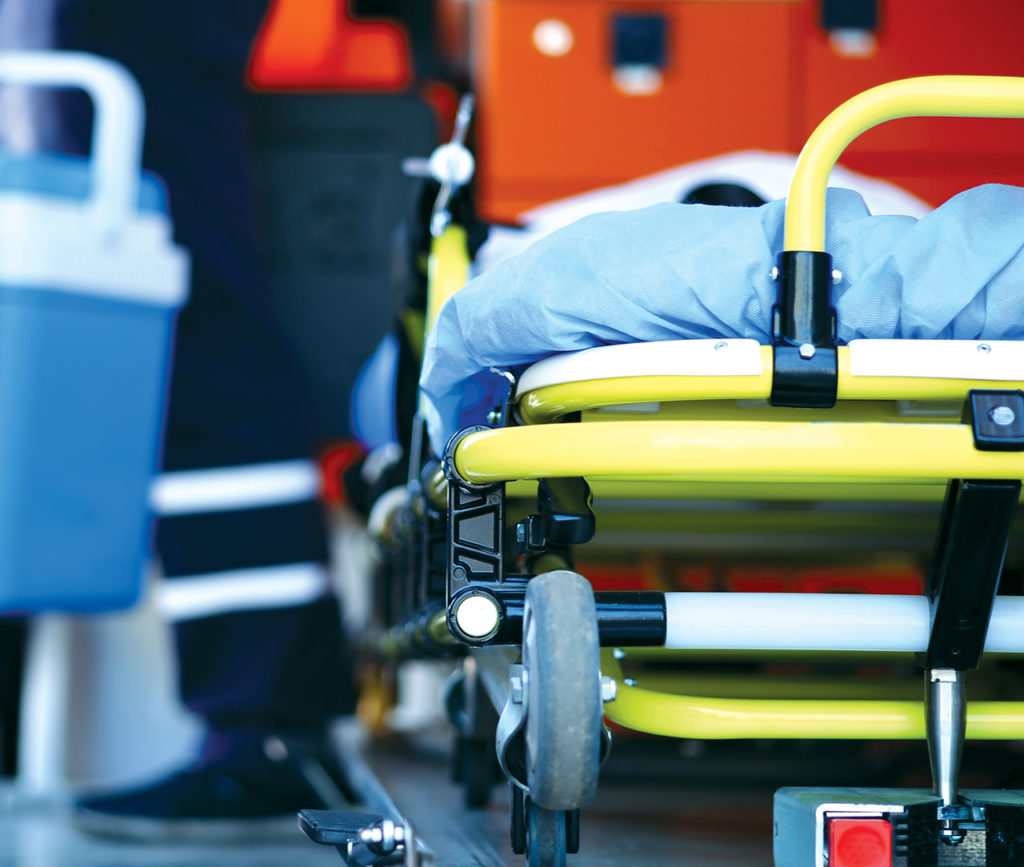About Emergency Preparedness

It’s time to change the way California thinks about disaster response. The COVID-19 pandemic showed that hospitals can quickly mobilize to provide flexible approaches to patient care during a disaster. The state must draw upon these lessons to prepare differently so the next crisis will be less severe. Given California’s size and complexity, the health care disaster response system of the future must be nimble enough to respond to any catastrophe. View more information on hospital disaster preparedness.
IoT Cyber Security: Foundational Security for IoT
2021 Virtual Disaster Conference
The Internet of Things (IoT) applications are growing rapidly with more healthcare organizations adopting the use of security cameras, drones, internet connected HVAC, and more. However, not all devices are designed with security in mind. Data breaches in the news are increasing in frequency.
Impacts of Ransomware Attacks on Hospitals and Health Systems
2021 Virtual Disaster Conference
This presentation provides a unique national perspective on the rash of recent ransomware attacks, identify the groups behind these attacks, how hospitals and health systems have become victimized, and what can be done to prevent these attacks.
Health Industry Cybersecurity: Cyber Incident Checklist
Healthcare & Public Health Sector Coordinating Councils
This Operational Continuity-Cyber Incident (OCCI) checklist provides a flexible template for operational staff and executive management to respond to and recover from an extended enterprise outage due to a serious cyber attack.
Preparing for a Ransomware Attack
2023 Disaster Conference
UCLA Health developed an executive ransomware playbook to guide leaders on the initial detection, confirmation, institutional response priorities, and decision making following a cyber-attack. Learn about the unique threat a cybersecurity incident presents to a hospital and how to use those unique considerations in the development of a response plan.
Cyberattack Exercise: A Drill Like No Other
2023 Disaster Conference
A review of lessons learned from development, logistical challenges, and exercise facilitation for a multi-hospital, corporate-wide drill. Includes improvement planning activities from our After-Action Report (AAR). Also, this presentation ties in our follow-up exercise (June 2023) and shares challenges and insights from this event.
Cybersecurity Preparedness and Response for the Enterprise and Industry
2023 Disaster Conference
Cyberattacks against the health sector are proliferating, causing loss of data, connectivity, operations, reputation, money, and ultimately, patient safety. Attendees will learn about the Health Sector Coordinating Council and the many free best practice and guidance publications the Council has created for scalable cybersecurity preparedness and response programs.
Altered Standards of Care
Adapting Care under Extreme Conditions In 2006 the American Nurses Association (ANA) embarked on a new effort to engage the nursing profession in the policy development process on a timely policy issue impacting their profession. The resulting policy document addresses topics relevant to health professionals who provide care during extreme emergencies and with scarce resources.
Difficult Decisions: Implementing Rationing Strategies with Scare Resources
When the demand for healthcare services surpasses available resources, hospitals face challenging decisions. Effective resource allocation requires assessing the urgency and necessity of treatments, and hospitals may establish frameworks to prioritize patients based on factors such as the severity of their condition, the likelihood of treatment benefit, and overall public health outcomes.
Crisis Care Resources for Hospitals
Public health emergencies, natural disasters, and mass casualty events require hospitals to implement triage protocols to prioritize care based on patient severity and treatment likelihood. Hospitals must strive for equitable access, particularly for vulnerable populations, while addressing the ethical implications of resource allocation.
Crisis Standards of Care
2021 Virtual Disaster Conference
Presented by UC Davis Health, this session offers a unique perspective to Crisis Standards of Care, offering strategies for operating with scarce resources in disaster events. Learn how this system convened a group of physicians, bio-ethicists, communications specialists, and disaster planners to work through this incredibly arduous topic.